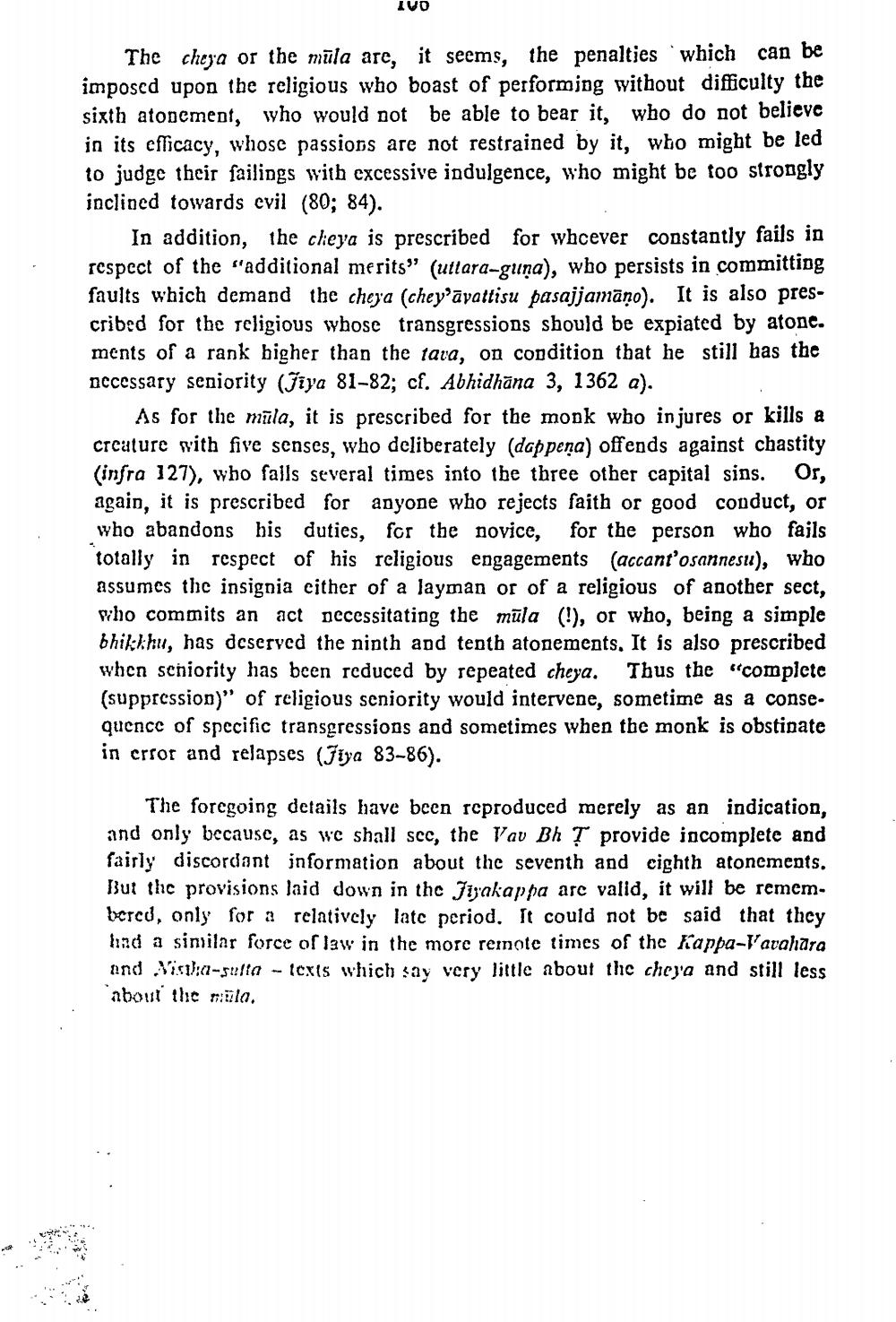________________
Ivo
The cheya or the mūla are, it seems, the penalties 'which can be imposed upon the religious who boast of performing without difficulty the sixth atonement, who would not be able to bear it, who do not believe in its efficacy, whose passions are not restrained by it, who might be led to judge their failings with excessive indulgence, who might be too strongly inclined towards evil (80; 84).
In addition, the cheya is prescribed for whcever constantly fails in respect of the sadditional merits" (uttara-guna), who persists in committing faults which demand the cheya (chey'āyattisu pasajjamāņo). It is also prescribed for the religious whose transgressions should be expiated by atone. ments of a rank bigher than the tara, on condition that he still has the necessary seniority (Jiya 81-82; cf. Abhidhāna 3, 1362 a).
As for the mīla, it is prescribed for the monk who injures or kills a creature with five senses, who deliberately (dappena) offends against chastity (infra 127), who fails several times into the three other capital sins. Or, again, it is prescribed for anyone who rejects faith or good conduct, or who abandons his duties, for the novice, for the person who fails totally in respect of his religious engagements (accant'osannesu), who assumes the insignia either of a layman or of a religious of another sect, who commits an act necessitating the mūla (!), or who, being a simple bhikkhu, has deserved the ninth and tenth atonements. It is also prescribed when schiority has been reduced by repeated cheya. Thus the "complete (suppression)" of religious seniority would intervene, sometime as a consequcncc of specific transgressions and sometimes when the monk is obstinate in crror and relapses (Jiya 83-86).
The foregoing details have been reproduced merely as an indication, and only because, as we shall scc, the Vav Bh T provide incomplete and fairly discordant information about the seventh and cighth atonements. But the provisions laid down in thc Jiyakappa arc valid, it will be remem. bercd, only for a relatively latc period. It could not be said that they hind a similar force of law in the more remote times of the kappa-V'avahara and Vista-sulta - texts which say very little about the cheya and still less about the müla.




